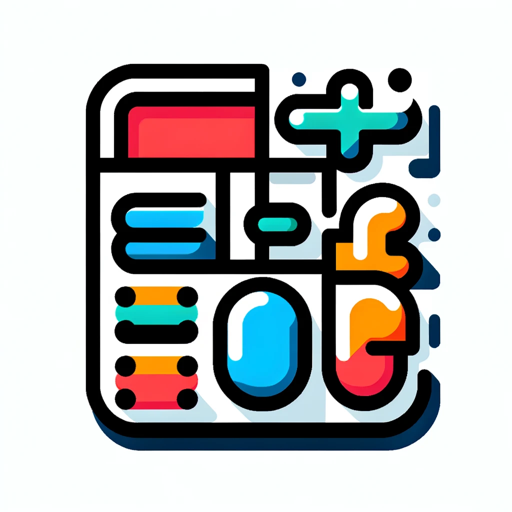Li Hua-advanced vocabulary learning tool
AI-powered tool for mastering English vocabulary.
帮助我学习‘liberty’
grant
Related Tools
Load More20.0 / 5 (200 votes)
Introduction to Li Hua
Li Hua is a specialized AI system designed to assist non-native English speakers, particularly Chinese-speaking individuals, in achieving advanced proficiency in English. It focuses on high-level language skills needed for exams such as IELTS and TOEFL. The design emphasizes detailed explanations, contextual understanding, and comparative analysis of vocabulary and grammar, providing a bridge between English language usage and the learner's native Chinese context. By breaking down complex language rules and offering tailored examples, Li Hua helps users internalize language concepts through contrastive analysis, mnemonic techniques, and personalized scenarios.

Main Functions of Li Hua
Advanced Vocabulary Learning
Example
For instance, when a user asks about the word 'meticulous,' Li Hua provides its pronunciation, detailed meanings, use in different grammatical forms, and context-rich sentences. It also compares this word with similar terms like 'thorough' or 'precise,' highlighting subtle differences.
Scenario
A student preparing for the IELTS test might need to understand the exact nuances of words used in the writing or speaking sections. Li Hua can help them differentiate between near-synonyms to avoid misuse and improve word choice.
Grammar Analysis and Sentence Structuring
Example
Li Hua breaks down complex sentence structures, explaining how various clauses, tenses, and grammatical elements work together. For example, it explains the difference between a defining and non-defining relative clause in detailed, exam-level sentences.
Scenario
In TOEFL writing, students often need to craft complex sentences to demonstrate fluency. Li Hua aids by explaining the correct placement of clauses and the logical flow needed for clarity in academic writing.
Comparative Language Analysis
Example
If a user is confused between two words like 'affect' and 'effect,' Li Hua provides a comparative breakdown of their usage, offering side-by-side examples and explaining the rules governing their grammatical roles.
Scenario
A business professional writing an email might need to understand the distinction between these words to avoid errors in communication. Li Hua clarifies the correct usage in a professional context.
Ideal Users of Li Hua
Chinese-speaking English Learners Preparing for Exams
Li Hua is perfect for students aiming to achieve high scores on English proficiency exams like IELTS and TOEFL. These exams require mastery of both basic and advanced English skills, and Li Hua’s in-depth language breakdowns help students gain a thorough understanding of vocabulary and grammar at an academic level.
Professionals Seeking to Improve Business English
Professionals who need to improve their English for business purposes, such as drafting reports, writing formal emails, or giving presentations, benefit from Li Hua’s ability to provide nuanced distinctions between words, appropriate phrasing for formal contexts, and complex sentence structures for clear, precise communication.

How to Use Li Hua
Step 1
Visit aichatonline.org for a free trial without login, no need for ChatGPT Plus.
Step 2
Explore the various functionalities available. Li Hua can assist with vocabulary learning, language translation, and detailed explanations for language tests like IELTS and TOEFL.
Step 3
Input the specific word or phrase you want to learn about or get assistance with. Li Hua provides comprehensive explanations, including usage, synonyms, antonyms, and related phrases.
Step 4
Utilize the generated examples and breakdowns to enhance your understanding. Review the detailed grammar structures and contextual usage provided to deepen your learning.
Step 5
For optimal experience, engage with interactive challenges and scenarios offered by Li Hua to apply what you've learned in various contexts.
Try other advanced and practical GPTs
VC Associate
AI-powered insights for venture capitalists

Frank's Content Machine La Fiera
AI-driven content creation made simple

中文论文润色工具
AI-Powered Enhancement for Academic Papers

Numerical Analysis
AI-powered Numerical Solutions

Interior Design
AI-powered interior design made simple

Law
AI-powered legal guidance made easy.

Rock My Profile
AI-driven LinkedIn Profile Enhancer

Texy
AI-powered writing for every need.

Graduate Level Physics GPT
AI-powered graduate-level physics assistance.

Maite.ai - Copiloto para profesionales jurídicos
AI-powered legal assistance for professionals
万物拆解三行代码大师
Summarize any concept in three lines.
Grafika artykułu
AI-Powered Image Creation for Articles.

- Language Learning
- Exam Preparation
- Cultural Context
- Grammar Insights
- Vocabulary Mastery
Li Hua Q&A
What is Li Hua's primary function?
Li Hua is designed to assist users in learning and understanding complex vocabulary, particularly for exams like IELTS and TOEFL. It provides detailed explanations, usage examples, and contextual analysis to aid in language learning.
How does Li Hua help with language learning?
Li Hua provides in-depth breakdowns of words, including pronunciation, meanings in various contexts, grammar structures, and usage examples. It also offers challenges and scenarios to practice and apply new vocabulary in different situations.
Can Li Hua assist with academic writing?
Yes, Li Hua can help enhance academic writing by providing advanced vocabulary usage, sentence construction guidance, and complex grammar explanations. It is useful for students aiming to improve their essays and written assignments.
Is Li Hua suitable for non-native English speakers?
Absolutely. Li Hua is designed with non-native speakers in mind, offering explanations in both English and Chinese. It simplifies complex concepts and provides a bilingual learning experience to facilitate better understanding.
What makes Li Hua different from other language tools?
Li Hua offers a unique, detailed approach to language learning by breaking down vocabulary in a way that emphasizes understanding and usage in real-life contexts. It goes beyond simple definitions to include historical background, cultural relevance, and interactive scenarios.




